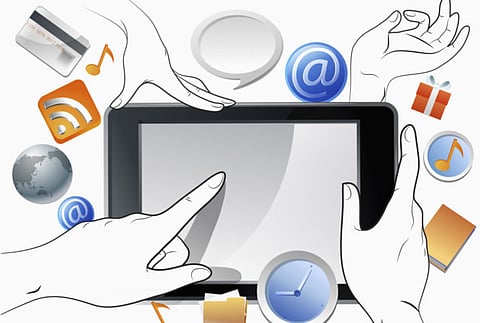What ate PCs for lunch?
Windows and Intel went up a hill selling a whole lot of computers. Windows fell down and broke its OS crown, and Intel’s profits came tumbling after...

It was only a few years back when Wintel — a portmanteau of Windows and Intel — was synonymous with computing. Apple was struggling to survive while tablets belonged to the realm of science fiction. Mary Meeker, a partner in the US based venture capital firm Kleiner Perkins Caufield and Byers points out in her December 2012 State of the Web report that until about 2005, Wintel commanded 96 per cent of the global market for operating systems on personal computing platforms. Now that market has shrunk to 35 per cent.
Now it is a combination of iOS and Android that rules the roost with a 45 per cent share. Users are increasingly bypassing the PC, and picking up tablets and smartphones instead. Apple, in the first quarter of 2013, reported a drop in Mac sales to 4.1 million, down from 5.2 million for the same period last year. However, Apple foresaw the problem and switched lanes well in time — now its bread and butter comes from iPads and iPhones. Apple had a bumper year and posted a quarterly revenue of $54.5 billion (about Dh200.18 billion) and a quarterly net profit of $13.1 billion.
It also extended its empire with the iPad mini. As Mary Meeker’s report points out, “iPods changed the media industry, iPhones ramped even faster... iPad growth (3x iPhone) leaves its siblings in the dust.” She adds that the most sought-after item for American kids these days is an iPad.
Research firm Gartner estimates that compared to the fourth quarter of 2011, PC sales fell 4.9 per cent in the same period of 2012. International Data Corporation paints a bleaker picture — 89.8 million PCs were shipped worldwide in the fourth quarter of 2012, down 6.4 per cent compared to the fourth quarter of 2011. PC shipments in Europe, Middle East and Africa totalled 28.1 million units, a 9.6 per cent decrease from the fourth quarter of 2011. Advanced Micro Devices’ revenues tanked one-third, leading to a net loss of $473 million. Meanwhile, Intel’s fourth quarter revenues were down 3 per cent to $13.5 billion, compared to the same period last year, while profits were down 27 per cent. Stacy Smith, Intel’s CFO, attributes this partly to tablets.
Globally, Dell was hit hardest, with a dip of 20.9 per cent. No wonder its founder, Michael Dell, plans to make Dell private in a $22 billion buyout, and rejig its core business from manufacturing PCs to IT services.
The key question is — did the PC camp not see this tablet tsunami headed its way? Many analysts expected it would cause a few dents, not pull the rug from under, says Gartner’s analyst, Mikako Kitagawa. “Whereas once we imagined a world in which individual users would have both a PC and a tablet, we increasingly suspect that most will shift to a personal tablet. Most buyers will not replace secondary PCs in the household, instead allowing them to age out.
“There will be some individuals who retain both, but we believe they will be the exception and not the norm,” he adds.
A decade ago, it was hardware that was playing catch up with software. But the chase is over, and even the traditional PC bastion of gaming is seeing a challenge. At the recent CES, Razer showcased a Windows 8 gaming tablet with a graphic card and buttons, while Archos came with the GamePad, an Android tablet with dedicated keys.
Barclays Capital’s hardware analyst Ben Reitzes says, “We believe a new generation of consumers and IT workers are figuring out how to compute differently than those that started using PCs in the 90s — relying more on mobile devices and the cloud — as PCs see significant task infringement by the day. Most PC industry players still don’t seem to realise what is happening — and don’t have contingency plans.”
Adding to the woes of the PC industry, the launch of Windows 8 did not result in buyers lining up to buy PCs sporting the touch-friendly OS.
David Daoud, research director at IDC, says, “Consumers expected all sorts of cool PCs with tablet and touch capabilities. Instead, they mostly saw traditional PCs that feature a new OS optimised for touch and tablet with applications and hardware that are not yet able to fully utilise these capabilities.”
However, PCs will not vanish. Forrester Research predicts two billion PCs and 760 million tablets worldwide by 2016. Its analyst Frank Gillett says, “Eventually tablets will slow laptop sales but increase sales of desktop PCs. That’s because many people, especially information workers, will still need conventional PCs for any intensely creative work at a desk that requires a large display or significant processing power.”
Sign up for the Daily Briefing
Get the latest news and updates straight to your inbox


